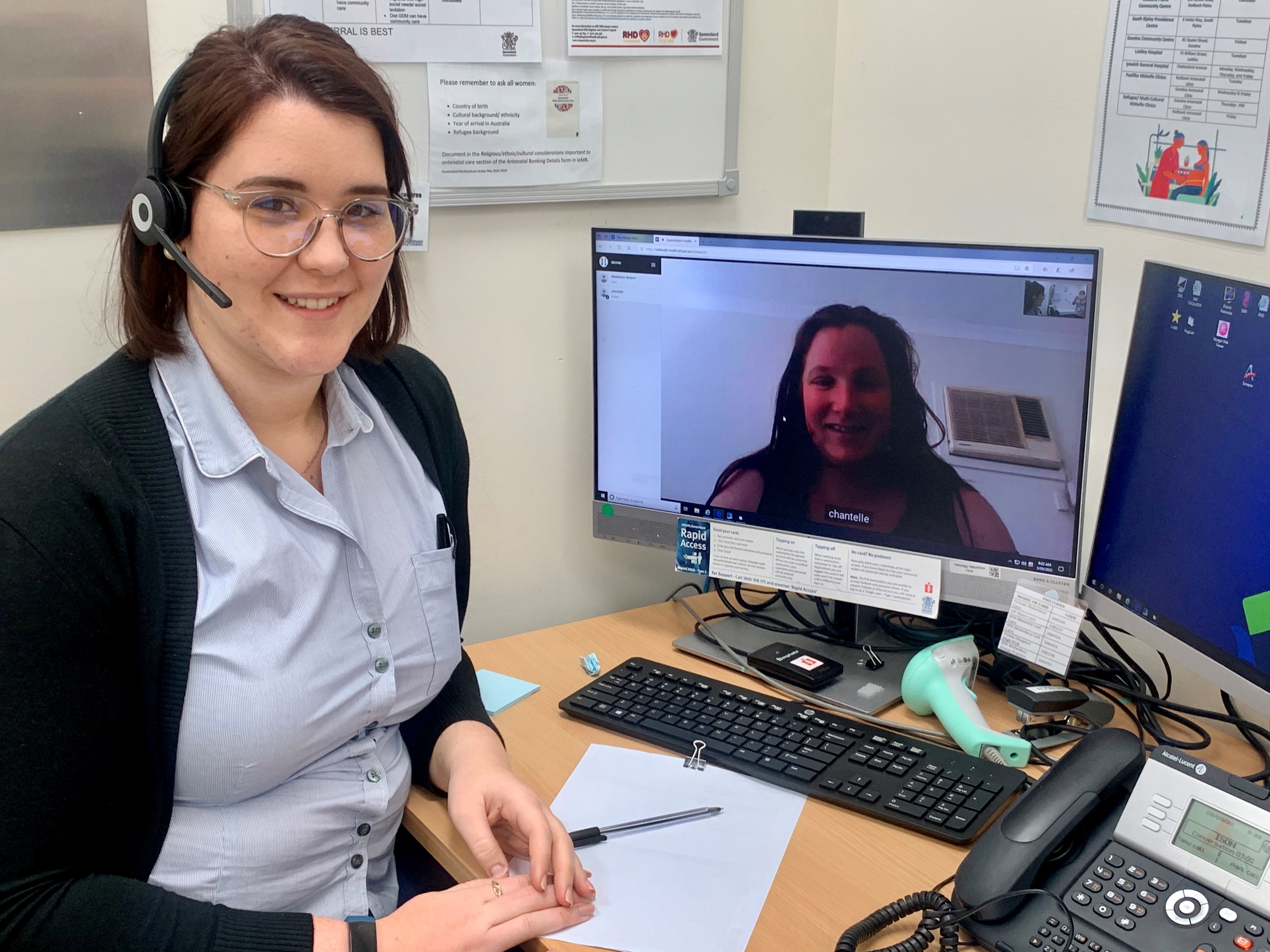VIDEO conferencing technology is helping West Moreton Health expand its reach and provide more care closer to home.
Telehealth – which uses videoconferencing technology to connect people in the community to specialist health expertise – was introduced to West Moreton Health in 2015.
The number of telehealth appointments delivered has soared from an average 300 to 900 appointments a month in the space of just six months.
Antenatal and post-natal care is among the key services to adopt the technology this year.

West Moreton Health’s chief operating officer Matthew Tallis said videoconferencing, including the successful MeCare digital platform, has been in place at West Moreton Health for more than five years.
“Videoconferencing has maintained community access to health services, which is important to population health.”
Mr Tallis said telehealth videoconferencing was here to stay.
Telehealth business coordinator Jasmin Wegener said telehealth videoconferencing was appropriate for any appointments that do not require a clinician to physically touch a person to perform a health check.
“That means appointments where a clinician is providing education, discussing results or following up on earlier interventions can all be safely provided via telehealth,” Ms Wegener said.
“Because telehealth uses videoconferencing, clinicians and patients maintain that visual interaction which helps with explanation and demonstration of body movement.
“There are a lot of benefits to health consumers as it saves the expense and time of travel and removes barriers to people who either don’t have access to transport or have a disability that makes it harder to access a health facility.”
Ms Wegener said a new virtual waiting room, which was added to the West Moreton Health telehealth platform in July, provided a better user experience, allowing consumers to register their availability and wait for an appointment as they would in-person, and improved efficiencies for clinicians to focus more on patient care.
Ambulatory Services Nurse Unit Manager Julie Eaton said videoconferencing appointments were rolled out in July for the initial 70-minute book-in appointment with all expectant mothers.
“The first woman to use telehealth joined an early morning videoconference appointment from her bedroom surrounded by her kids. She didn’t need to worry about rushing to the hospital with her three kids in tow – it was a convenient, relaxed experience,’’ Ms Eaton said.
“Face-to-face videoconferencing helps clinicians establish a better connection and rapport with patients than talking over the phone, and our midwives remain alert to visual signs of vulnerabilities or risk.”
Ms Eaton said the videoconferencing platform had since been expanded to post-natal appointments in the 10 days after women give birth.
“We previously only offered telephone follow-ups for anyone who lived outside a 30km radius of Ipswich Hospital and in-person visits for those inside the radius,” Ms Eaton said.
“Using videoconferencing, midwives spend less time in the car travelling around and more time speaking with mothers to discuss their concerns. It also provides greater flexibility as, previously, if the baby was asleep during a midwife’s visit they would miss the opportunity to see how the baby was latching during breastfeeding. Now the midwife can say to the mum ‘ring me back when baby is awake’ and they can resume the videoconference at a more suitable time.’’
Ms Eaton said they were excited to launch antenatal group education classes by videoconferencing next month.
“There was previously a cap of 10 couples per class but the telehealth platform will provide access to more people in the region which is a great outcome as the more informed expectant parents are, the more confident they feel about child birth and parenting,’’ Ms Eaton said.
“People can choose to attend only the sessions of interest, which I think will be a great incentive for second, third and fourth-time parents to take a refresher, and it may also remove any anxiety for those who feel uncomfortable attending group sessions in-person.”
